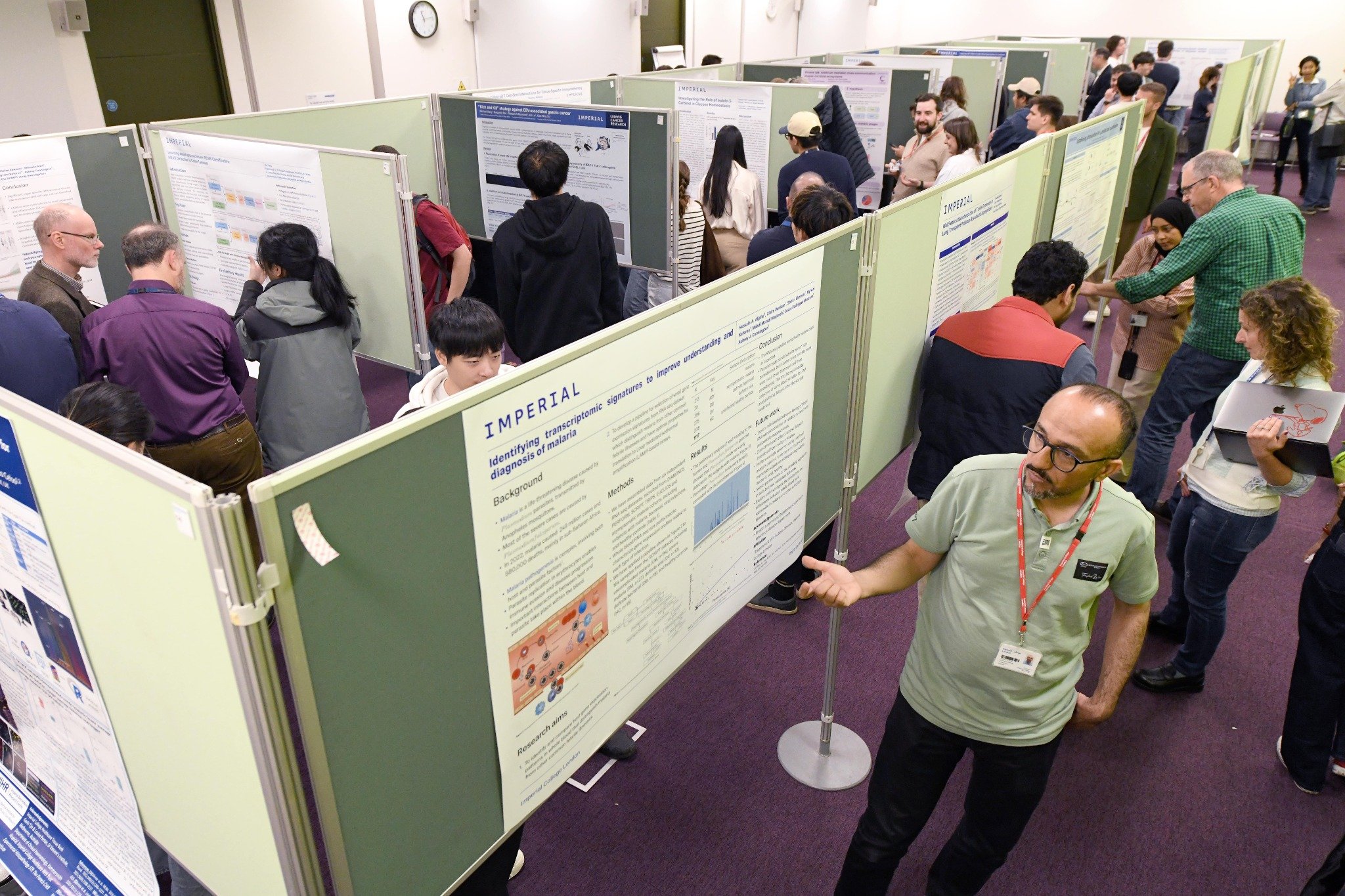
On Friday 9 May 2025, research degree students and academic judges came together to showcase their presentations at Rising Scientist Day – an annual event designed to showcase the talent and hard work of our postgraduate research students.
The day featured two parts: a PhD poster competition and a three-minute thesis competition which allowed students to win prizes based on their clarity and communication of scientific ideas.
For the poster competition, students presented their research and assessed the originality and quality of their research, poster content and design and presentation and communication skills. The judges then reviewed the posters and agreed on the winners.
For the three-minute thesis, judges scored the presentations out of ten using the same criteria to then determine the prize winners for first, second, and third place.
Beyond the prizes, Rising Scientist Day offered students a valuable platform to share their scientific ideas, engage with peers and experts, and sharpen their presentation skills. Here’s what some of the participants had to say about their experience:
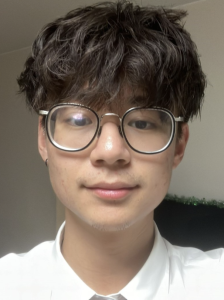 Daniel Sin
Daniel Sin
“I had a great time on Rising Scientist Day! It felt really rewarding to present my PhD work to the rest of the department and share Science that I felt passionate about, and it was great to hear other’s feedback on my project. The feedback was useful for my own considerations on what I should prioritise for future directions. It was also really cool to learn about what other types of projects other PhD students were working on. Looking forward to the next one!”
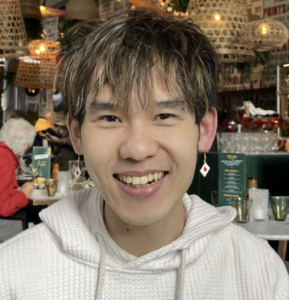 Michael Wang
Michael Wang
“It’s always a pleasure to connect with fellow PhD students in the cohort. During Rising Scientist Day, I was able to present my work to members of the Faculty and get valuable feedback, while keeping myself up to date on the latest research performed by my follow batchmates, and fostering potential collaborations on future research projects.
It’s heartening to see students of the Faculty come together to exchanging ideas and insight, and really strengthening our ties as a research community. I look forward to participating in similar events in the future.”
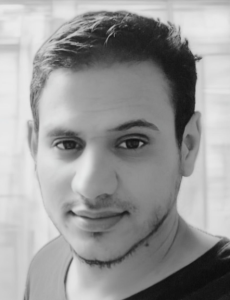 Muteb Alatawi
Muteb Alatawi
“Rising Scientist Day gave me the opportunity to present my research entitled “multi-omic characterization of T cells Dynamics in Lung Transplant Patients-Associated Aspergillosis”. The event featured various activities that made it truly valuable for research students.
The poster sessions allowed me to showcase my work and receive feedback from colleagues and judges. Additionally, meeting and networking with other students and learning about the fascinating work being conducted across different departments was incredibly enriching. These interactions sparked new ideas for my own research and opened doors for potential collaborations that could strengthen my project.
The 3-minute thesis competition was particularly engaging – watching colleagues distill complex research into concise presentations demonstrated an impressive skill in highlighting their work’s significance without technical overload, which was both educational and inspiring. The alumni talk was valuable and offered insights into academic career paths, giving me perspective as I approached my final year.
Overall, Rising Scientist Day offered excellent practice in communicating research to diverse audiences – essential for my development as a scientist.”
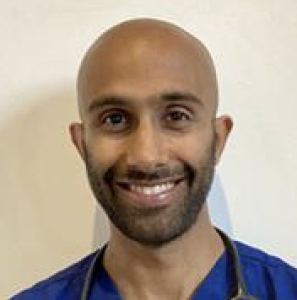 Ravi Mehta
Ravi Mehta
“At this year’s Rising Scientist Day “3-minute thesis” competition, I presented my PhD research tackling one of the major challenges in infectious diseases: slow viral diagnostics. My work centres on ddhC, a host-derived small molecule produced in response to many viral infections. Rather than relying on PCR to detect the virus itself, detection of the body’s immune response offers a faster alternative. Using human challenge models, we’ve shown that ddhC levels rise and fall during the acute phase of viral infection. ddhC can identify viral infections across a wide range of settings – including in children, in patients from tropical regions, in spinal fluid from meningitis cases, and even in urine, raising the exciting possibility of a needle-free test.
Until now, ddhC has only been detected using costly and complex mass spectrometry. To overcome this, I’m developing aptamer-based assays. Aptamers – DNA strands that fold into specific shapes to bind their targets – have been engineered to detect ddhC and produce a fluorescent signal. This system is now being trialled in patient samples and adapted into a lateral flow format. Ultimately, this work positions ddhC as a pan-viral biomarker across different populations and biofluids, paving the way for rapid, accessible diagnostics that could help curb antibiotic misuse and support faster responses to future pandemics.
My experience of Rising Scientist Day was excellent overall. It really showcased the sheer diversity of research happening across Imperial – from fundamental science to applied clinical work – and it was inspiring to see so many different presenting styles and some truly exciting results. The event was also a great opportunity to connect with others, and develop new collaborations.”
 Samuel Channon-Wells
Samuel Channon-Wells
“I thought RisingScientist Day 2025 was a highly rewarding event, definitely exceeding my expectations. Presentations across the board were high quality, and the three-minute-thesis presentations were a particular highlight. I enjoyed the array of work on display, as well as the diverse presentation style.
As a PhD student the day was especially useful. It provided great insights from colleagues into effective research communication, as well as potential new approaches I could use in the future. It was also really enjoyable to see other students condense their years of work into concise, interesting, and often funny presentations. I also found preparing for my own three-minute-thesis presentation an incredibly valuable opportunity. Having to focus on clarity and effective scientific story telling over technical complexity was a challenging but useful experience.
The event was also great for meeting other researchers across a range of disciplines, although I think the ambition should be for even greater participation and engagement from within the various departments! It was a fantastic day and I think lots of colleagues and peers would benefit from attending!”